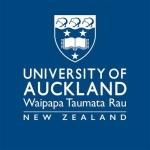Science honours for Auckland researchers
The University of Auckland is celebrating the success of its researchers who received seven medals at the Science Honours Dinner last night, 21 November, including the top award.
“We are very proud of these outstanding researchers,” says Professor Jane Harding, Deputy Vice-Chancellor Research. “These awards recognise not only the extremely high calibre of the winners, but also the contributions of the many staff and students who work with them and will share in celebrating their success.”
Professor Margaret Brimble received the Rutherford Medal, the highest award of the Royal Society of New Zealand, for her world-leading contributions to the synthesis of bioactive natural products and novel peptides with wide applications across the life sciences industry.
Professor Brimble, from the School of Chemical Sciences and Maurice Wilkins Centre of Molecular Biodiscovery, is an expert in medicinal and natural products chemistry, synthesising chemical compounds from nature that show promise for medical applications such as the treatment of cancer.
At the awards dinner she also received the MacDiarmid Medal for outstanding scientific research with the potential for application to human benefit, and the Hector Medal for outstanding work by a researcher in New Zealand. The latter award specifically recognised her work pioneering the design, synthesis and clinical development of a small molecule drug candidate that shows promise for significantly reducing the impact of traumatic brain injury.
Professor David Williams received the Pickering Medal, a technology excellence award, for his contribution to the development of biomedical and gas sensors which have been commercialised. Professor Williams, from the School of Chemical Sciences and MacDiarmid Institute, is an expert in electrochemistry and chemical sensors. His work has been commercialised through spin-out companies, most recently Auckland-based Aeroqual Ltd, the world’s largest manufacturer of hand-held and networked ozone sensors.
Professor Russell Gray received the Mason Durie Medal, a social sciences award presented for the first time this year, for his pioneering social science research on questions of fundamental relationships between human language, cognition and biology. Professor Gray, from the School of Psychology, has made significant contributions to the fields of linguistic and cultural evolution, animal cognition and the nature/nurture debate, and pioneered the application of techniques from evolutionary biology to study linguistic prehistory.
Professor Jonathan Mane-Wheoki received the Pou Aronui Award for his outstanding contribution in the development of the humanities in Aotearoa New Zealand. The award recognises distinguished service over a sustained period. Professor Mane-Wheoki, from the Elam School of Fine Arts, is an art historian, architectural historian, cultural historian and curator, and in particular a pioneer in the development of contemporary Māori and Pacific art and art history. He was honoured for his work and insightful leadership in a wide spectrum of academic and public sector organisations.
Professor John Fraser received the Sir Charles Hercus Medal, a health science award, for his pioneering studies on bacterial superantigens that have major implications for understanding and treating a range of human infectious diseases. Professor Fraser, Dean of the Faculty of Medical and Health Sciences and Deputy Director of the Maurice Wilkins Centre, is an expert in immunology and infectious diseases, particularly superantigens produced by the body in response to infection, and virulence factors that help infectious agents thrive and overcome immune defences.
